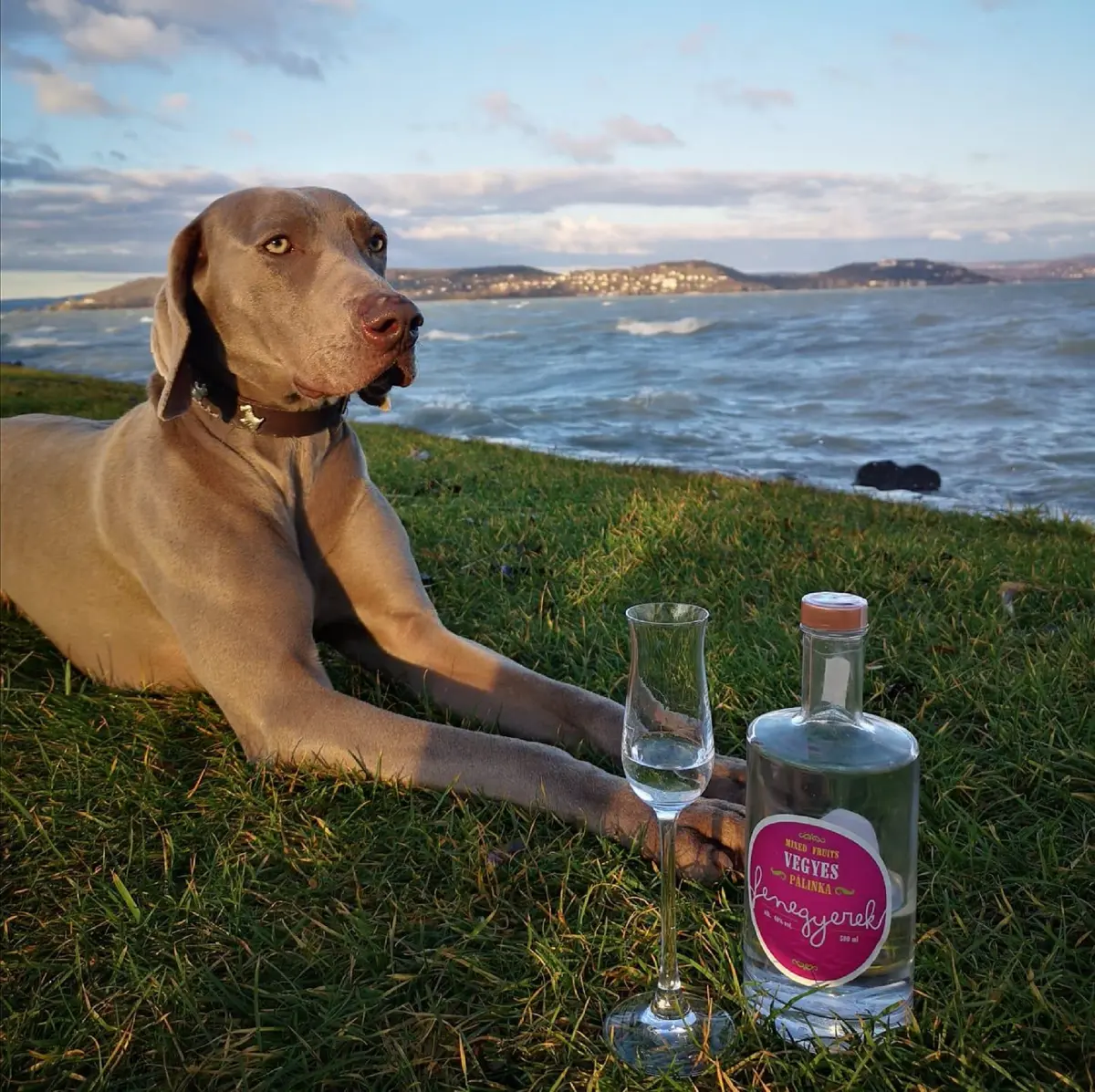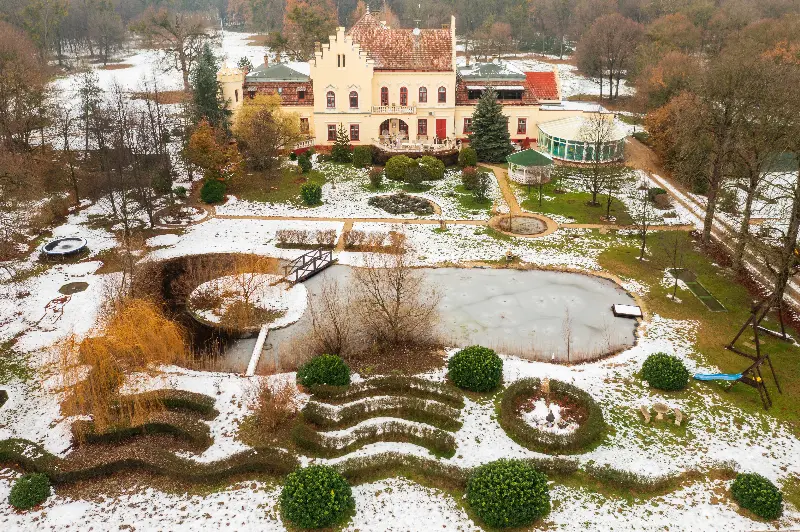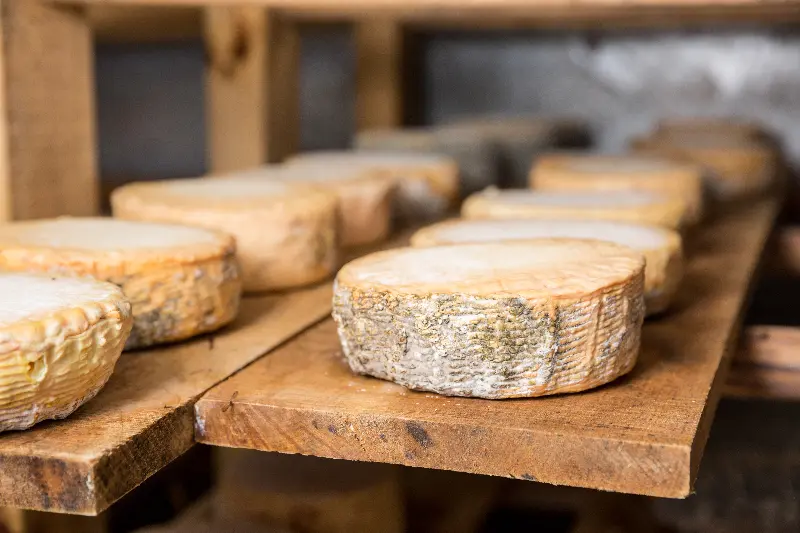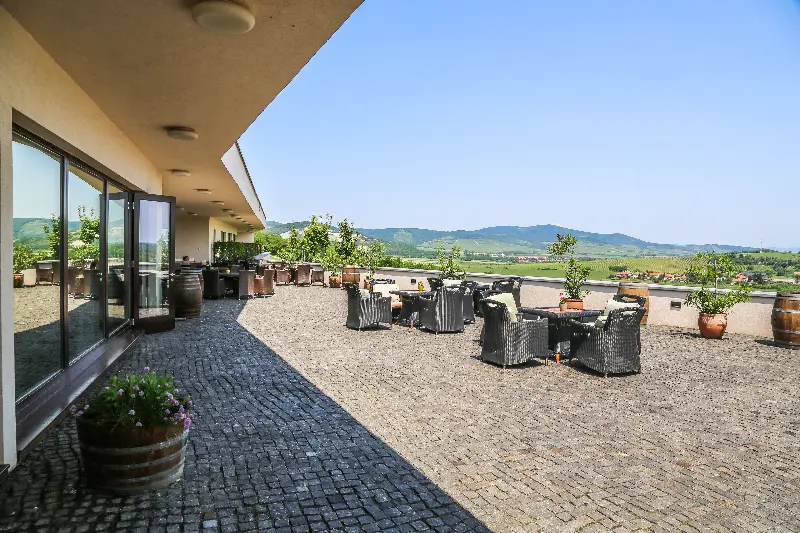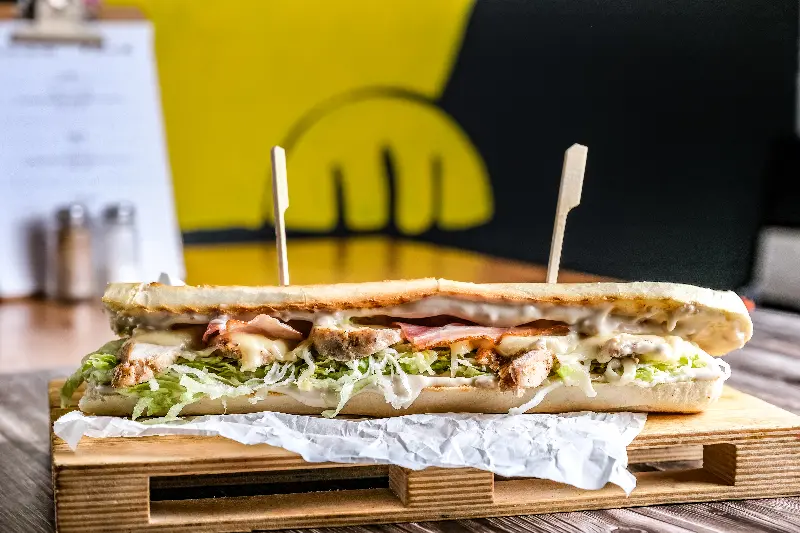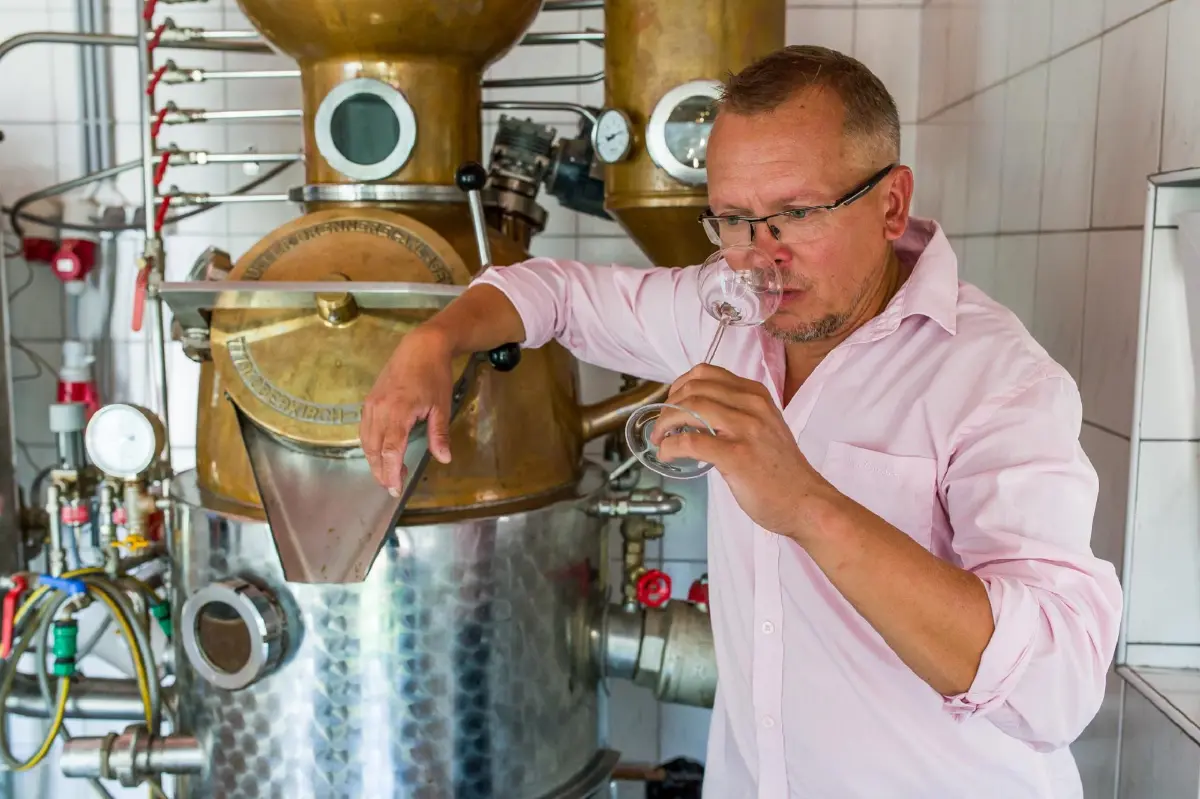
Helyszín címkék:
The Daredevil from Zamárdi, who distilled all his knowledge into his brandies
Hegedüs Robi
Work doesn’t stop here on Sundays either?
It is a timely question, I was just thinking these days that this summer I didn’t have time to cycle or play golf, so I missed out on relaxation. Not for nothing, of course, because this is how I can guarantee that all 24 items in our range will be shelved to my own high standards of quality. But the creative process of experimentation should ideally require more free time. I am full of ideas all the time, and I am currently working on new fruit combinations.
What does a master distiller’s day look like?
Early in the morning I pump up the vinasse (the fermented fruit), turn on the machine and watch it brew. I used to say: sometimes you have to look at it, just like in case of children. I also spend a lot of time in front of the computer to keep in touch and keep up to date, so I’m in and out of the basement and the office. Guests are welcome to come in at any time, usually I show them the equipment, and then the tasting can begin, and the best part is: the storytelling. The bulk of the physical work is done when I collect, sort and seed the many different kinds of fruit: we are past that at this time of year at the end of September, so it is easier now. I never finish before 9 p.m., it is basically my life.
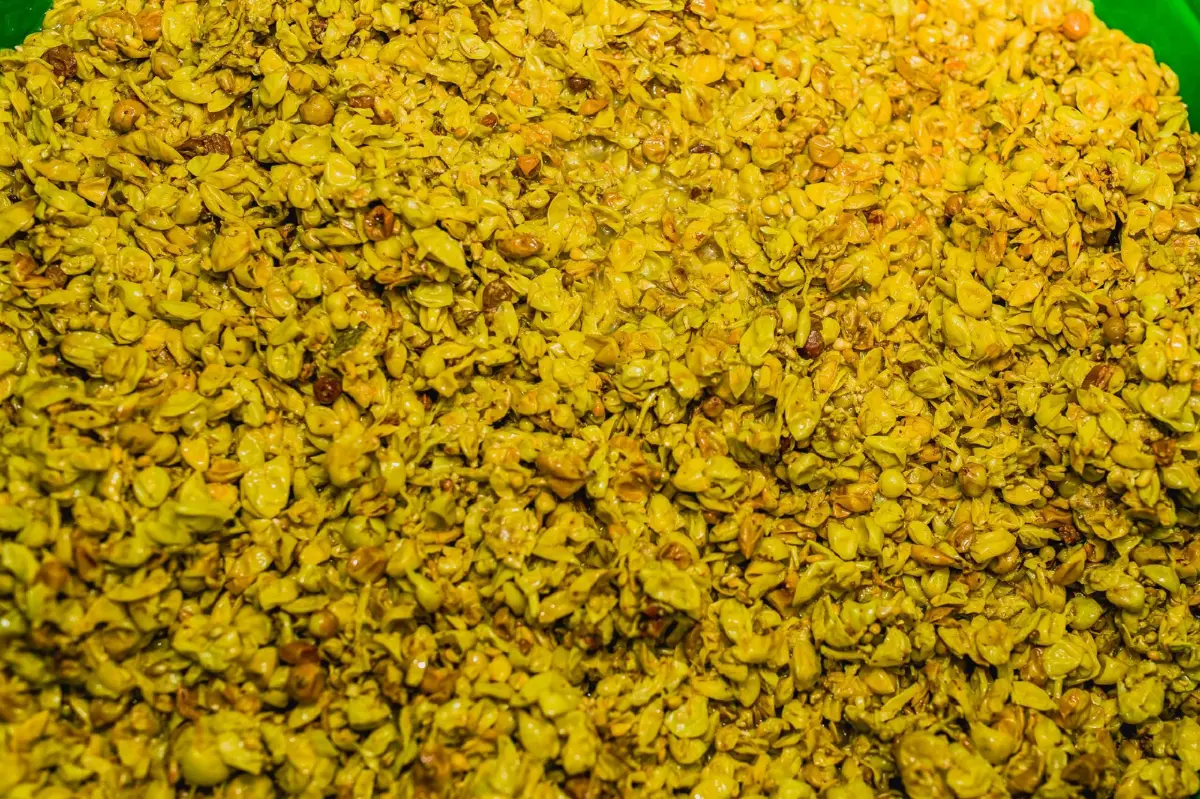
What makes a really good quality pálinka?
First, you need to brew with quality fruit. If you are looking around in a shop, it is not recommended to buy a half-litre of less than HUF 5,000. It is hard to produce controlled quality at this price. Unfortunately, however, there are also large quality differences between the more expensive labels, as there is no good classification system to serve as a guide. It is safer to smell the pálinka – the smell says it all. Either we recognise the smell of the fruit it is made from, or we smell a technological error. If it smells like acetone nail polish remover or glue, for example, then the pálinka is pre-distilled. This is usually found in home-brewed spirits, and is something to be very careful about, because high ethyl acetate concentrations can be particularly harmful to your health. The pálinka is post-distilled if it smells like boiled potatoes or corn.
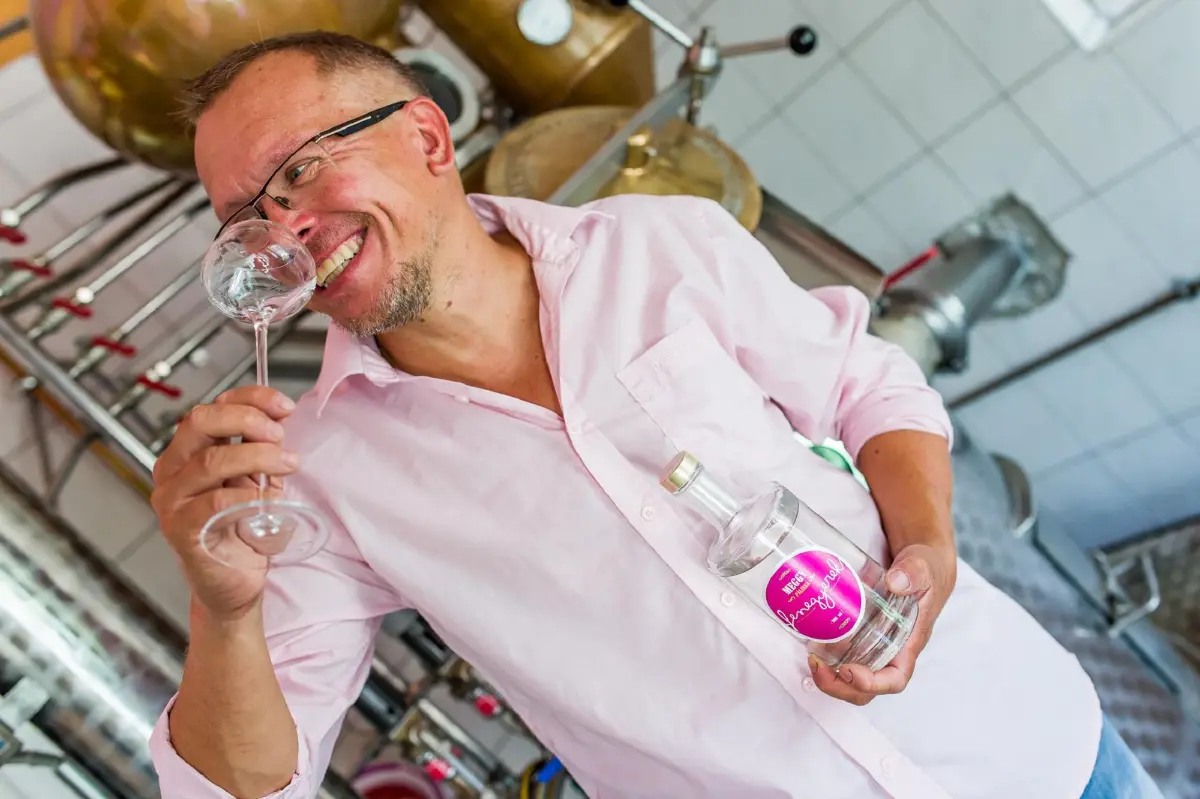
Where does this insistence on quality come from?
It is the only way to make it worthwhile. It can all be learned, it just takes desire, ambition and perseverance. There is a saying that everyone in Hungary is a self-proclaimed football and pálinka expert. I think that’s where the trouble starts. I myself started the profession in 2008 in Zimek Manufaktúra, also in Zamárdi, with a German gentleman: I learned the basics from him and over time, we took over his brewery; I continued for a while, but then we sold it. Since 2018 I have been growing my own brand, ‘Fenegyerek’ (Daredevil). In the meantime, I have been able to pass on my accumulated knowledge and experience to eight classes of students. It is good to see more and more people entering the field who care about professionalism. They have three options: to start their own commercial brewery, to produce for others in a contract brewery, or to cook for private use for the enjoyment of friends. All three can be achieved if they are a love project and the financial backing comes from elsewhere.
Who is your customer base?
The consumption of pálinka is very popular among Hungarians, and we have a tradition of it, especially in the countryside. It is a question of who is willing to spend how much. If you search for premium short drinks on the Internet, whisky, gin, cognac and rum are still the most popular, followed by pálinka. But that’s not so much the point, it’s through personal encounters that a rare and unique brand can be successfully distributed. Fortunately, many restaurants around Lake Balaton sell our products, which means that many locals or holidaymakers come directly to us, and 8 out of 10 of them are sure to buy because they find what they see authentic. Besides, in my experience, female customers are more aware, more brand loyal and can be better targeted.
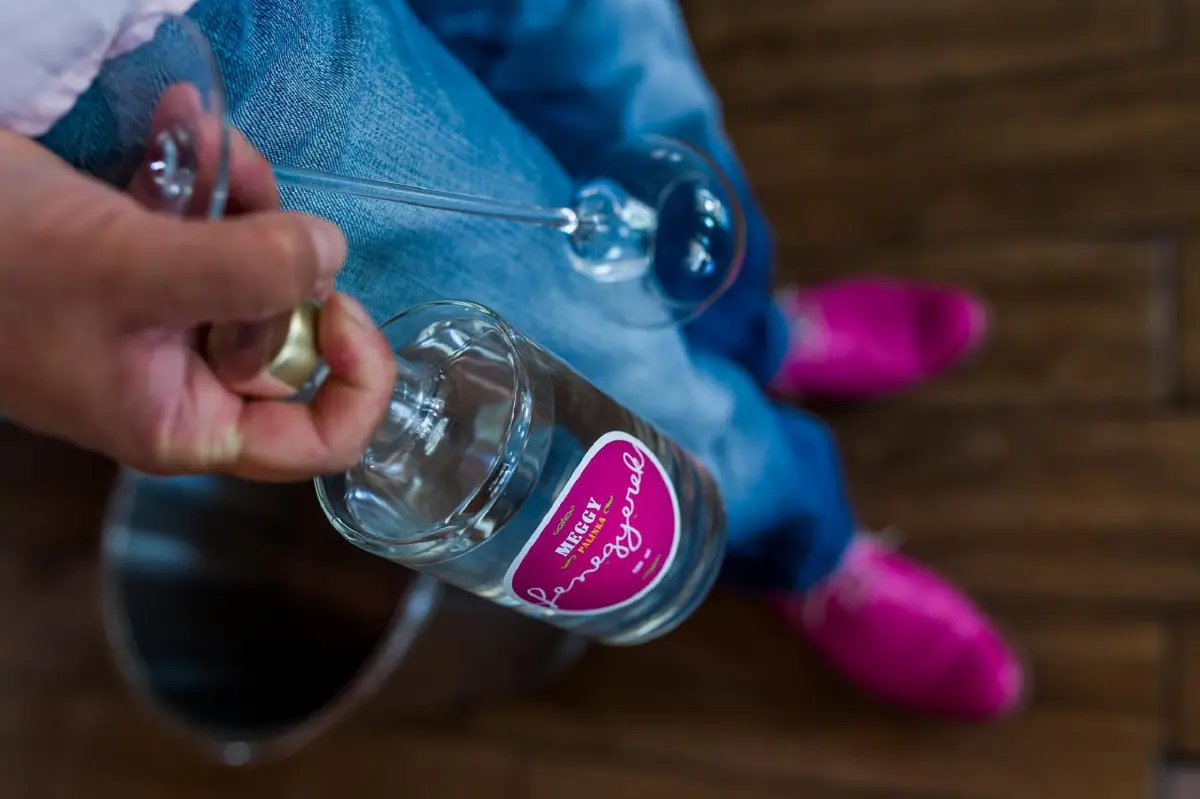
Why is there no breakthrough to foreigners?
On the shelves of large supermarkets, we hardly stand a chance against products of very modest quality compared to our own, so foreign buyers – who thus encounter top quality in limited channels and formats – are distrustful. In the same way, festivals are unfortunately also less able to create space for high-quality labels in most cases. True, the question may arise whether it is the place for gourmet tasters. I would add that it is also up to us. Across the country, six advocacy organisations are campaigning with six types of pálinka promotion programmes. The first step would be to create a new common platform from which we could communicate our proposals more clearly, so that we could start out into the world with a stronger tailwind. Anyway, I believe in educating the home audience.
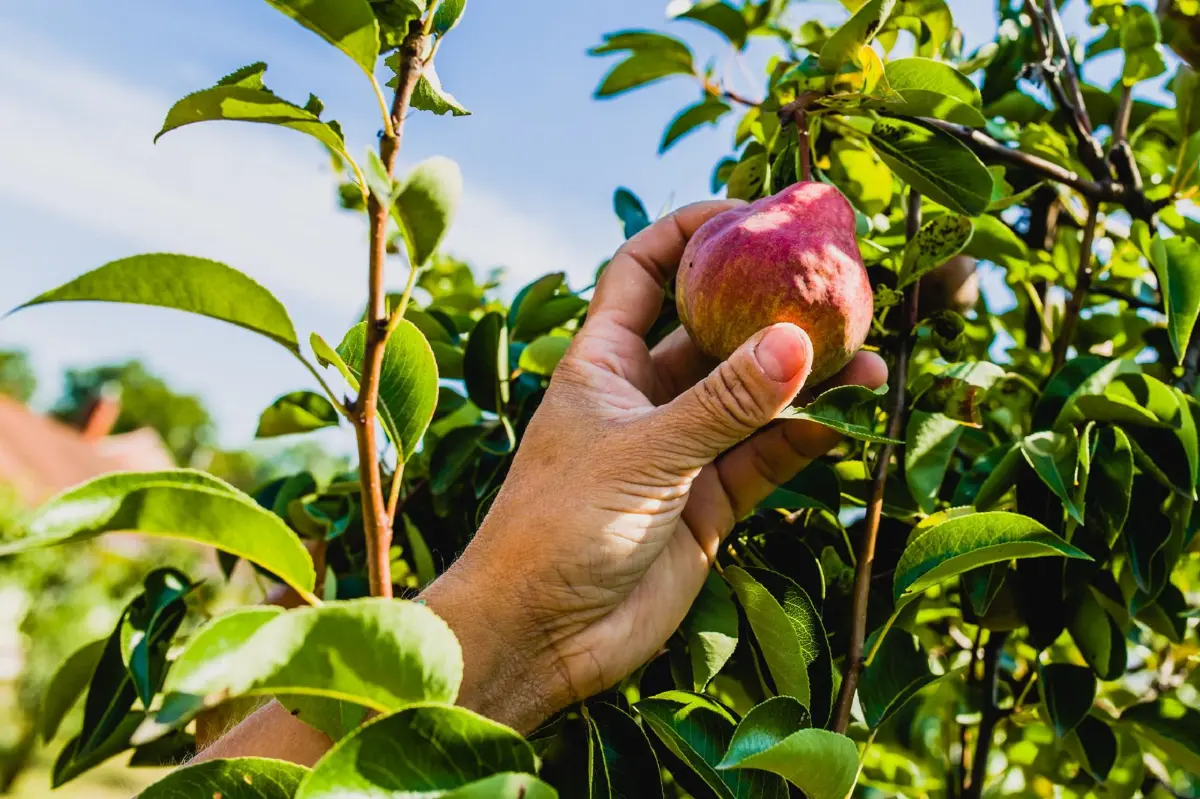
What actually makes pálinka extraordinary?
Hungarian pálinka has been a protected product since EU accession in 2004, which means that it can only be produced in Hungary. I joke that, having been voted the country’s best distiller three times in various competitions, I am actually a three-time world champion. Nevertheless, good quality fruit spirits are also produced in neighbouring countries, in German-speaking areas with even more advanced fermentation technology than ours. In fact, they often buy the fruit from us and then sell their drinks without any problems, but at multiple prices. In 2010, we had 2,000 registered distillation plants, compared to 68,000 in Austria and 400,000 in Germany. What we can still beat them at is the wide range of fruit used in brewing. We can work with fruit varieties of a quality and range that is unique in the world. If we understand and appreciate this exceptional gift, we have discovered the secret of good pálinka.
